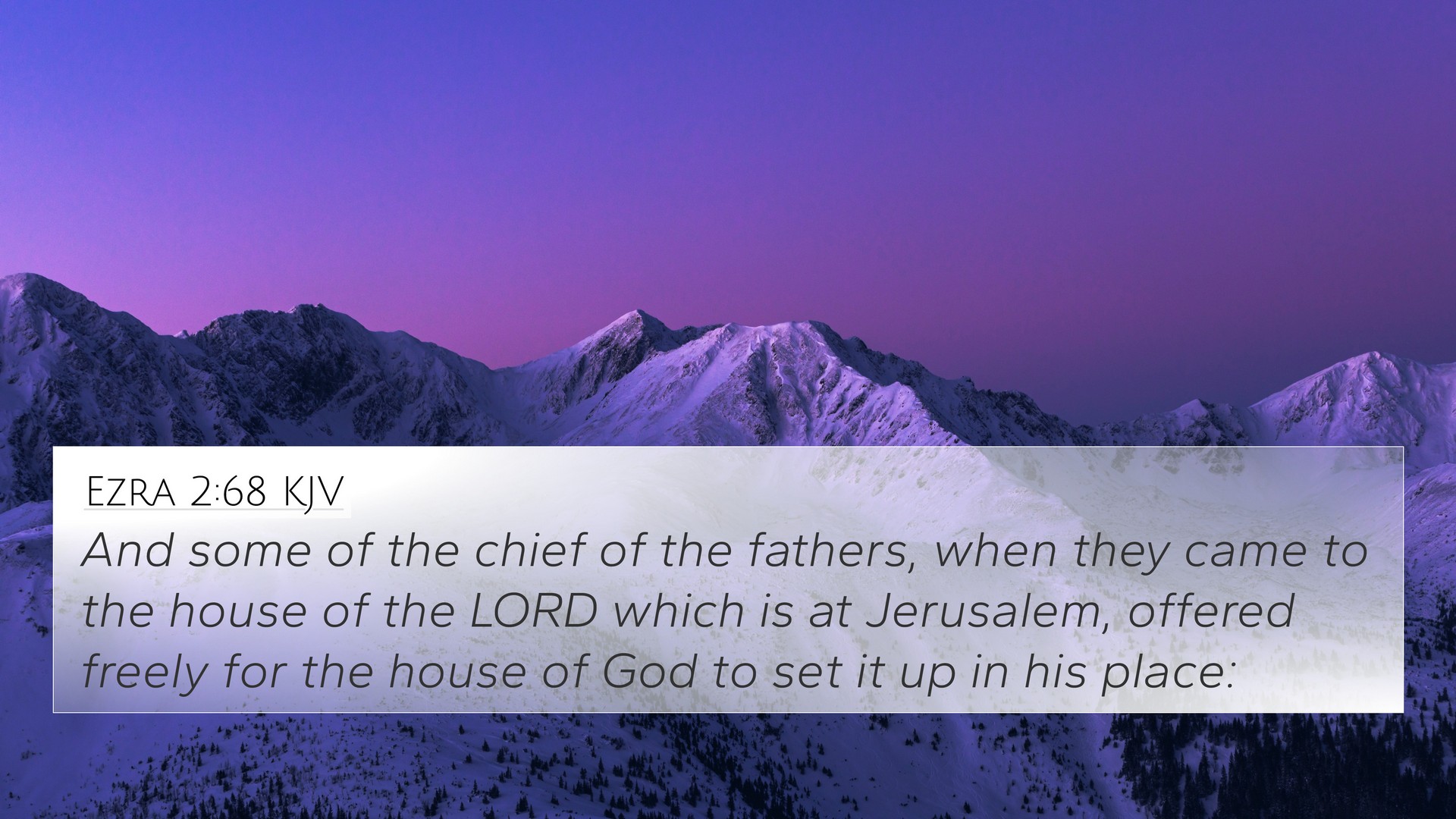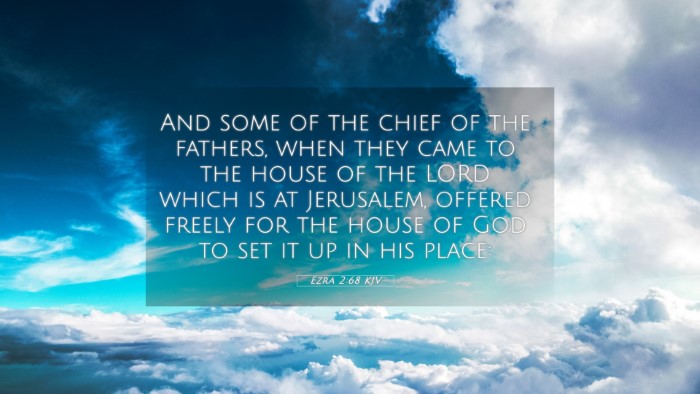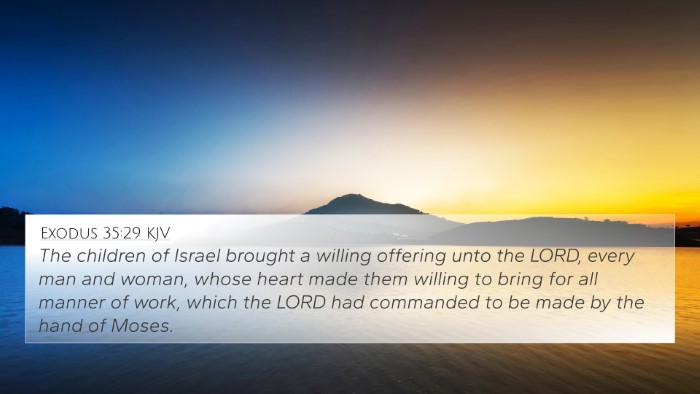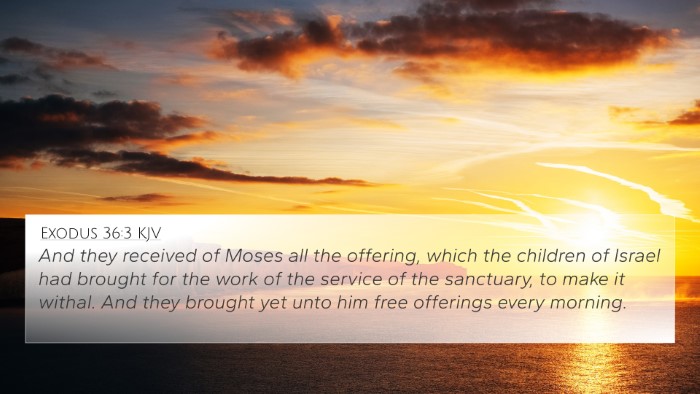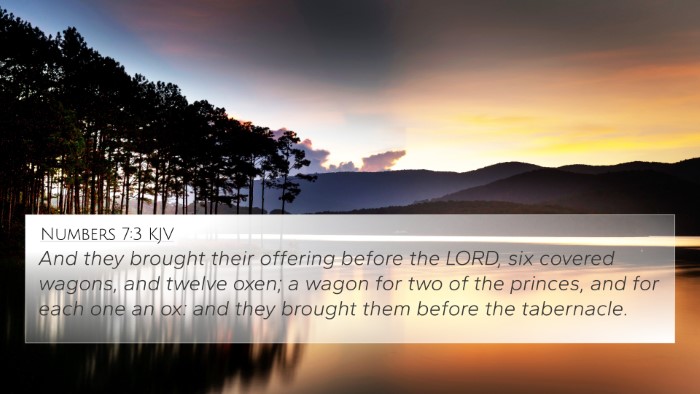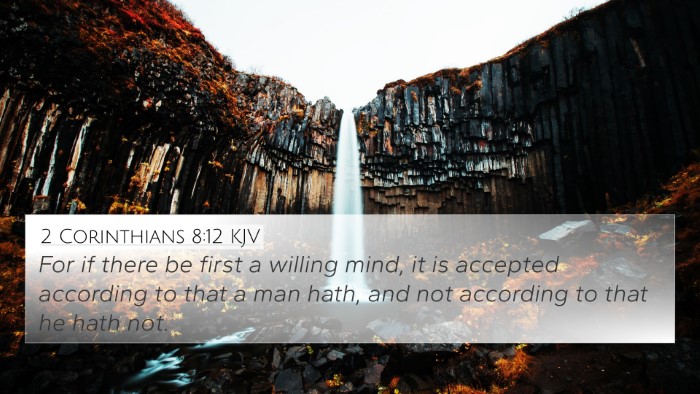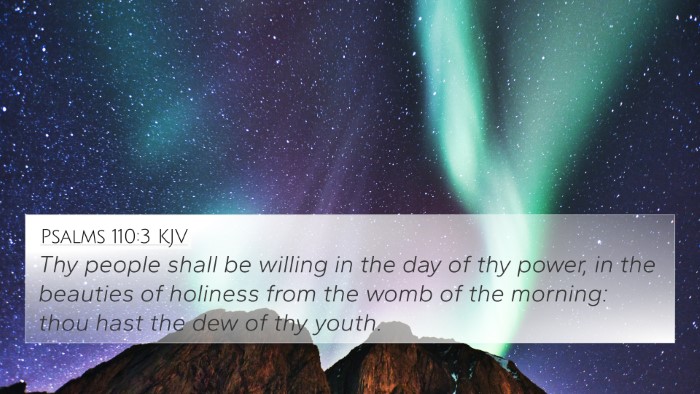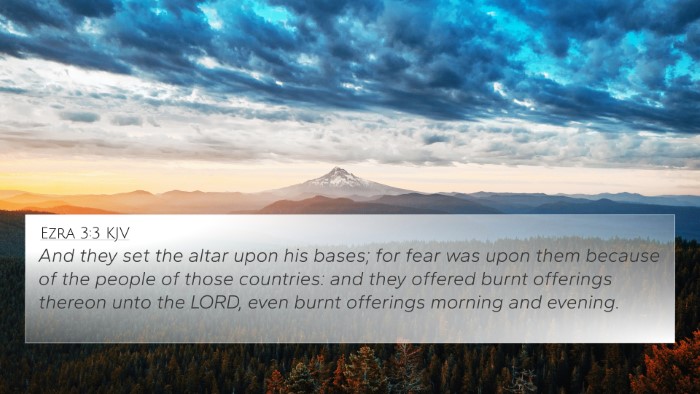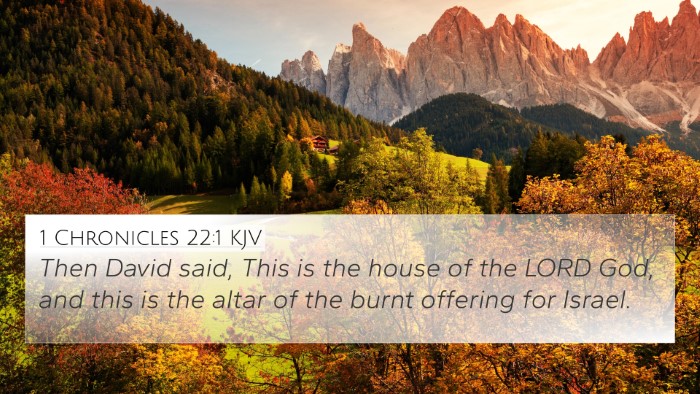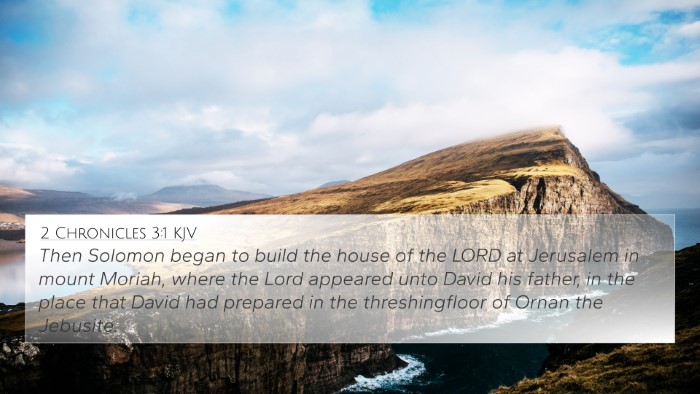Understanding Ezra 2:68
Ezra 2:68 states:
"And some of the chief of the fathers, when they came to the house of the Lord which is at Jerusalem, offered freely for the house of God to set it up in his place."
Summary of Meaning
This verse highlights the commitment and generosity of the leaders of the returning exiles as they contribute to the rebuilding of the temple in Jerusalem. Their actions are significant in the larger narrative of restoration after the Babylonian exile.
Insights from Public Domain Commentaries
- Matthew Henry: Henry emphasizes the willingness of the leaders to not just return to their homeland, but to actively participate in the restoration of God's house. They understand the importance of the temple as the center of worship and community life.
- Albert Barnes: Barnes notes the significance of contributions being “freely offered,” indicating a heartfelt response to God's faithfulness. This reflects a theological truth regarding the nature of offerings which should stem from a willing spirit.
- Adam Clarke: Clarke provides insight into the communal effort involved in rebuilding. He points out that this was a collective responsibility among the leaders, showcasing the unity and determination of the returning exiles.
Cross-References
Understanding the context and implications of Ezra 2:68 can be enhanced through cross-references. The following verses provide thematic connections:
- 1 Chronicles 29:9: This verse discusses offerings made with joy, linking the spirit of giving to the establishment of worship in the temple.
- Exodus 25:2: This verse speaks of offerings given willingly for the construction of the sanctuary, paralleling the spirit of generosity seen in Ezra.
- 2 Chronicles 24:10: Similar themes of offering arise here as people willingly bring contributions for the temple repair.
- Nehemiah 12:43: This illustrates the joy associated with the rebuilding efforts in Jerusalem, aligning with the sentiments shown in Ezra 2:68.
- Psalm 122:1-2: The joy of coming to the house of the Lord connects with the purpose behind the leaders’ offerings.
- Haggai 1:8: The call to rebuild the house of the Lord resonates with the actions taken by the leaders mentioned in Ezra.
- Philippians 4:18: The concept of a “sweet-smelling sacrifice” connects New Testament themes of generosity and communal giving.
- Matthew 6:21: This verse underscores where one's treasure is, there the heart will be also, reflecting the heart behind the offerings in Ezra.
- Luke 21:1-4: The widow’s offering is a strong example of sacrificial giving, similar to the spirit seen in the leaders of Ezra’s time.
- Acts 4:34-35: Early Christians demonstrated a similar spirit of communal sharing and sacrificial giving for the needs of the community and the works of God.
Connections Between Bible Verses
The act of offering freely by the leaders can be seen as a motif throughout the Scriptures. The willingness to support God’s work reflects an understanding of stewardship that connects these verses with themes from both the Old and New Testaments.
Thematic Bible Verse Connections
Additionally, Ezra 2:68 connects various themes in Scripture:
- Stewardship: Reflects the expectation of believers to generously support God's work.
- Worship: The temple's reconstruction signifies a return to worship, important in both Old and New Testament contexts.
- Community Effort: The rebuilding involves collective community participation, emphasizing unity among the people of God.
Tools for Bible Cross-Referencing
For further exploration of biblical texts and their connections, several resources and methods can be beneficial:
- Bible Concordance: Tools that provide lists of words and phrases to locate verses across the Bible.
- Bible Cross-Reference Guide: Guides that help identify verses that relate to one another, aiding in deeper Bible study.
- Cross-reference Bible Study: Methods that encourage examination of related verses to gain a fuller understanding of themes.
User Intent - Finding Cross-References
To aid in the quest for understanding how different verses relate, here are guidelines:
- Use a Bible concordance or online cross-reference tool to discover related verses.
- Look for thematic similarities between verses by focusing on shared concepts.
- Engage in comparative bible verse analysis to uncover deeper insights.
